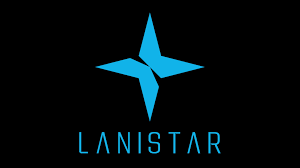Founded in 2019 and headquartered in London, Lanistar aimed to disrupt the fintech industry with its “Volt” debit card, which promised enhanced security through polymorphic technology. The card, marketed as the “world’s most secure,” allowed users to link up to eight bank cards, manage finances via an app, and generate one-time PIN codes for transactions. Targeting younger demographics, Lanistar employed aggressive social media campaigns featuring influencers like Kevin de Bruyne, Demi Rose, and Love Island stars to amass over a billion social media impressions at its pre-launch.
Led by CEO Gurhan Kiziloz, Lanistar positioned itself as a challenger bank, partnering with Mastercard and Jumio for payment processing and identity verification. The company claimed to employ over 400 staff across offices in London, Athens, and Skopje, with ambitions to become a £1 billion unicorn startup. However, regulatory scrutiny and operational controversies soon cast doubt on its legitimacy.
Suspicious Activities and Red Flags
1. FCA Warning for Unauthorized Operations
In November 2020, the UK’s Financial Conduct Authority (FCA) issued a consumer warning against Lanistar, stating that the firm was “providing financial services or products in the UK without our authorization.” The FCA cautioned that unauthorized firms might be running investment scams and that consumers would lack access to ombudsman or compensation schemes if funds were lost. This warning, reported by Forbes, Business Insider, and City A.M., was a significant red flag, as it suggested Lanistar was operating outside regulatory oversight.
Lanistar responded by asserting that it was not offering unauthorized services and would partner with FCA-authorized firms. Following negotiations, the FCA withdrew the warning on November 20, 2020, after Lanistar agreed to add disclaimers to its marketing materials and amend its website. While this resolution mitigated immediate regulatory concerns, the initial warning raised questions about Lanistar’s compliance practices and transparency.
2. Misleading Marketing and Influencer Campaigns
Lanistar’s marketing strategy relied heavily on social media influencers, who were reportedly offered stock options to promote the Volt card. According to InChief, these stock options were invalid due to Lanistar’s lack of FCA authorization, potentially misleading influencers and their followers. Some influencers, including one known as TGE, backed out after discovering regulatory issues, as noted in a Reddit thread.
Additionally, posts on X in April 2025 highlighted ethical concerns about Lanistar’s use of influencers, accusing the company of misleading marketing practices. Commentators pointed out that some influencers failed to label promotional posts as advertisements, violating advertising standards. These tactics suggest an attempt to generate hype without full transparency, a common strategy in questionable fintech ventures.
3. Financial Irregularities and Funding Controversies
Lanistar’s funding history is murky. In 2020, the company announced a £15 million investment from Milaya Capital, only to later retract this claim and state that the funds came from Kiziloz’s family members. This discrepancy, reported by BusinessCloud, raised concerns about the company’s financial transparency and credibility. The withdrawal of Milaya Capital’s investment further eroded confidence in Lanistar’s stability.
Moreover, Lanistar’s claim of a $190 million valuation in 2020 was met with skepticism, as public filings showed no evidence of significant external funding or high-level executive talent. Business Insider noted that the company’s publicity-friendly narrative often outpaced its operational reality, suggesting an inflated public image.
4. Operational and Employment Issues
Lanistar’s workplace culture and operational practices have drawn criticism. Glassdoor reviews from 2021 and 2023 described the London office as “hell on earth,” citing a toxic environment, unpaid wages, and mass layoffs. One review mentioned a “losers table” for underperforming staff, indicating a high-pressure culture. In 2024, eFinancialCareers reported that Lanistar faced liquidation over unpaid rent for its London office, with unconfirmed reports of ongoing wage disputes.
These operational challenges suggest financial instability and poor management, which could undermine Lanistar’s ability to deliver on its promises to consumers.
5. Lack of Executive Experience
Gurhan Kiziloz, Lanistar’s CEO, has been a focal point of scrutiny. Public filings and LinkedIn profiles reveal that Kiziloz, born in August 1987, had no prior experience in finance, technology, or banking before founding Lanistar. His previous role was as a director of a now-inactive London lettings agency, Geoffrey Raynard. Business Insider confirmed this lack of expertise, noting that Lanistar’s majority ownership lies with Kiziloz’s father, further centralizing control within the family.
Kiziloz’s opaque career history and the absence of seasoned executives in Lanistar’s leadership team raise concerns about the company’s ability to navigate the complex fintech landscape.
Personal Profiles: Gurhan Kiziloz and Key Associates
Gurhan Kiziloz
-
Background: Born in 1987, Kiziloz is the public face of Lanistar, styling himself as an entrepreneur and business consultant. His LinkedIn profile lists only his role at Lanistar, while his personal website offers vague details about his training services.
-
Red Flags: Kiziloz’s lack of fintech experience and the FCA’s 2020 warning have fueled speculation about his credibility. Posts on X in April 2025 labeled him a potential “fraudster,” though no criminal charges have been filed. His family’s financial backing and majority ownership of Lanistar suggest a lack of diversified governance.
-
Associations: Kiziloz’s father, who owns the majority of Lanistar, remains a low-profile figure with no public fintech credentials. The retracted Milaya Capital investment linked Kiziloz to Yasam Ayavefe, Milaya’s CEO, but no further business ties were confirmed.
Other Associates
-
Lord Aleem: A supercar hire company owner and influencer, Aleem heavily promoted Lanistar in 2020, driving a Lanistar-branded Bugatti. Reddit users raised concerns about Aleem’s father, Saleem Iqbal, citing allegations of questionable funding sources for their business. These claims remain unverified but contribute to the perception of dubious associations.
-
Mastercard and Jumio: Lanistar’s partnerships with these reputable firms lent initial credibility. However, Mastercard’s involvement was limited to payment rail approval, and Jumio’s role was confined to identity verification. Neither company has been implicated in Lanistar’s controversies.
Undisclosed Business Relationships and Associations
Lanistar’s business relationships are sparsely documented, with several undisclosed or retracted ties:
-
Milaya Capital: The retracted £15 million investment from Milaya Capital, led by Yasam Ayavefe, was a significant point of contention. Lanistar’s subsequent claim that funds came from Kiziloz’s family suggests an attempt to obscure financial origins.
-
Influencer Network: Lanistar’s reliance on a 3,000-strong influencer campaign, including high-profile figures like Karim Benzema and Luis Suarez, was not fully transparent. The promise of stock options to influencers, later deemed invalid, indicates undisclosed incentives that may have misled promoters and consumers.
-
Family Ownership: The majority ownership by Kiziloz’s father, with no public disclosure of his background or involvement, raises governance concerns. This lack of transparency could conceal conflicts of interest or financial dependencies.
Scam Reports, Allegations, and Consumer Complaints
Scam Allegations
The FCA’s 2020 warning explicitly linked Lanistar to potential investment scams, a serious allegation that reverberated across media outlets. InChief reported that influencers were “conned” into promoting invalid stock options, while Business Insider and Forbes highlighted the FCA’s concerns about unauthorized services. Although the warning was withdrawn, the initial accusation damaged Lanistar’s reputation and fueled consumer distrust.
Posts on X in April 2025 amplified these concerns, with users accusing Lanistar of misleading marketing and labeling Kiziloz a fraudster. While these posts lack legal weight, they reflect ongoing public skepticism.
Consumer Complaints
Consumer feedback on Lanistar is limited, as the Volt card has not fully launched. However, Reddit discussions in 2020 questioned the card’s legitimacy, with users noting critical app reviews and the FCA warning. One user remarked, “Influencers promoting banking? That’s sus,” highlighting distrust in Lanistar’s marketing.
Glassdoor reviews from employees, while not consumer-facing, provide insight into operational issues that could affect service delivery. Complaints about unpaid wages and layoffs suggest financial instability, which could translate to poor customer support or unfulfilled promises.
Criminal Proceedings, Lawsuits, and Sanctions
Our research found no confirmed criminal proceedings, lawsuits, or sanctions against Lanistar or its leadership as of April 2025. The FCA warning did not result in formal charges, and no bankruptcy filings were identified in public records. However, the reported liquidation threat over unpaid rent in 2024 indicates financial distress, which could escalate into legal issues if unresolved.
The lack of legal action may reflect Lanistar’s pre-launch status, as consumer exposure has been limited. Nonetheless, the absence of transparency and regulatory compliance raises the potential for future disputes.
Adverse Media and Negative Reviews
Adverse media reports have been a consistent theme in Lanistar’s short history:
-
Forbes (November 2020): Warned consumers about Lanistar’s unauthorized operations, quoting the FCA’s scam concerns. The article noted the company’s high-profile Instagram campaigns but questioned its legitimacy.
-
Business Insider (November 2020): Highlighted Lanistar’s lack of executive expertise, retracted funding claims, and the FCA warning. The report described the company’s hype as disproportionate to its operational capacity.
-
City A.M. (November 2020): Accused Lanistar of offering unauthorized services, emphasizing the FCA’s intervention. The article noted the company’s influencer-driven marketing as a potential risk for consumers.
-
eFinancialCareers (September 2024): Reported Lanistar’s potential liquidation over unpaid rent and ongoing employee complaints about unpaid wages and layoffs. The article described a toxic workplace culture, further damaging the company’s reputation.
-
InChief (November 2020): Detailed how Lanistar misled influencers with invalid stock options, urging creators to exercise caution. The report underscored the need for regulatory oversight in fintech marketing.
Negative reviews on Glassdoor and Reddit echo these concerns, with employees describing chaotic management and consumers questioning the Volt card’s viability. The cumulative effect of adverse media and negative sentiment paints Lanistar as a high-risk entity.
Risk Assessment
Consumer Protection Risks
Lanistar poses several risks to consumers:
-
Unauthorized Services: The FCA’s 2020 warning highlighted the risk of Lanistar operating without regulatory oversight, potentially leaving consumers without recourse if funds are lost. Although the warning was withdrawn, the incident suggests lax compliance.
-
Misleading Marketing: The use of influencers and unverified stock options could mislead consumers into trusting an unproven product. The Volt card’s “world’s most secure” claim lacks independent validation, risking false expectations.
-
Financial Instability: Reports of unpaid wages, layoffs, and potential liquidation indicate financial distress, which could compromise Lanistar’s ability to deliver services or protect consumer funds.
Scam and Financial Fraud Risks
While no confirmed scams have been attributed to Lanistar, several factors elevate the risk:
-
Regulatory Non-Compliance: The FCA’s initial warning linked Lanistar to potential investment scams, a serious accusation that warrants caution.
-
Opaque Funding: The retracted Milaya Capital investment and reliance on family funds raise questions about financial legitimacy, a common tactic in fraudulent schemes.
-
Influencer Manipulation: Offering invalid stock options to influencers suggests an intent to create a false sense of credibility, a hallmark of social engineering scams.
Reputational Risks
Lanistar’s reputation is severely compromised by:
-
Adverse Media: Consistent negative coverage from reputable outlets has eroded public trust, making it difficult for Lanistar to attract legitimate investors or customers.
-
Consumer and Employee Sentiment: Negative reviews on Glassdoor and Reddit reflect distrust among stakeholders, amplifying reputational damage.
-
Leadership Scrutiny: Kiziloz’s lack of expertise and the fraudster allegations on X further tarnish Lanistar’s image, deterring partnerships with established firms.
Criminal Report Risks
While no criminal proceedings are documented, the FCA warning and liquidation threat suggest potential for future legal issues. If Lanistar fails to pay debts or deliver services, it could face lawsuits or regulatory penalties. The absence of transparency in its operations increases the likelihood of investigations by authorities like the FCA or Action Fraud.
Expert Opinion:
In our expert opinion, Lanistar represents a high-risk entity for consumers, investors, and the fintech ecosystem. The company’s history of regulatory non-compliance, misleading marketing, and financial instability raises serious concerns about its legitimacy and operational viability. The FCA’s 2020 warning, while resolved, exposed significant gaps in Lanistar’s compliance framework, suggesting a lack of readiness to operate as a trusted financial institution. The reliance on unverified influencer campaigns and invalid stock options further undermines its credibility, as these tactics mirror strategies used in social engineering scams.
Gurhan Kiziloz’s lack of fintech experience and the opaque ownership structure centered around his family amplify governance risks. The retracted Milaya Capital investment and ongoing financial distress, evidenced by unpaid rent and wages, indicate that Lanistar may struggle to sustain operations or deliver on its promises. Adverse media reports and negative consumer sentiment reinforce the perception of Lanistar as a hype-driven venture with questionable substance.
For consumers, the primary risks lie in potential financial losses due to unauthorized services and the lack of regulatory protections. Investors face uncertainties stemming from Lanistar’s unstable financial foundation and reputational damage. While no criminal charges or lawsuits have been confirmed, the company’s trajectory suggests a high likelihood of future legal or regulatory scrutiny if current issues persist.
We recommend that consumers and investors exercise extreme caution when engaging with Lanistar. Until the company demonstrates consistent regulatory compliance, financial stability, and transparent governance, it remains a speculative and risky proposition. Regulatory bodies like the FCA should continue monitoring Lanistar’s activities to protect the public from potential fraud or financial harm.
References
-
Forbes. (2020). Stark Warning For Lanistar Card Holders.
-
Business Insider. (2020). Inside Lanistar, Flashy Fintech That Regulators Warn Might Be a Scam.
-
City A.M. (2020). Regulator issues warning on fintech Lanistar.
-
InChief. (2020). Social scam? UK fintech company Lanistar allegedly conned Instagrammers into unauthorised stock options.
-
eFinancialCareers. (2024). The party’s over at the craziest office in fintech.
-
BusinessCloud. (2020). Was FCA right to issue warning against Lanistar?
-
FCA. (2020). FCA statement on Lanistar consumer warning.
-
Reddit. (2020). What is Lanistar? Hot new bank card with a lot of social media attention?
-
Business Wire. (2020). Lanistar Challenges the Banking Status Quo with Streamlined Onboarding, Powered by Jumio.
-
X Post by @ComplaintBoxTV. (2025). Gurhan Kiziloz—Fintech Visionary or Fraudster?
-
X Post by @ComplaintBoxTV. (2025). Lanistar’s Misleading Marketing Practices Exposed.
-
Cybercriminal.com. (n.d.). Lanistar Investigation. https://cybercriminal.com/investigation/lanistar




Recent Investigations
Alexander J Dillon
Low Trust Index
View Threat AlertAshcroft Capitals
Low Trust Index
View Threat AlertGetDandy.com
Low Trust Index
View Threat AlertCommunity Reviews and Comments
Average Ratings
2.3
Based on 5 ratings
by: Elias Boyd
Gurhan Kiziloz’s lack of relevant fintech experience, combined with concentrated family ownership, raises serious governance red flags. Without seasoned leadership and transparent oversight, Lanistar’s prospects for sustainable success are bleak.
by: Freya Boone
Financial opacity is a hallmark of Lanistar’s troubled history from retracted investments to undisclosed family funding, the company’s finances are murky at best. Combined with toxic workplace reports, this spells a recipe for operational failure.
by: Malik Drake
The use of influencer marketing with invalid stock options to artificially inflate credibility is both unethical and misleading. Lanistar knowingly exploited the lack of regulatory approval to misrepresent its legitimacy to the public.
by: Nina Pope
Lanistar’s repeated regulatory missteps and the FCA warning for unauthorized financial services paint a clear picture: this company is not trustworthy. Operating without proper authorization puts consumers at severe risk of losing funds with no protection or recourse.
by: Hugo Sharp
Lanistar’s FCA warning for unauthorized operations alone should be a red flag to anyone thinking of trusting them with money.
Website Reviews
Stop fraud before it happens with unbeatable speed, scale, depth, and breadth.
Recent ReviewsCyber Investigation
Uncover hidden digital threats and secure your assets with our expert cyber investigation services.
Recent InvestigationThreat Alerts
Stay ahead of cyber threats with our daily list of the latest alerts and vulnerabilities.
Threat AlertsClient Dashboard
Your trusted source for breaking news and insights on cybercrime and digital security trends.
Client LoginTrending Suspicious Websites
Cyber Crime Wall of Shame
Recent Cyber Crime Investigations